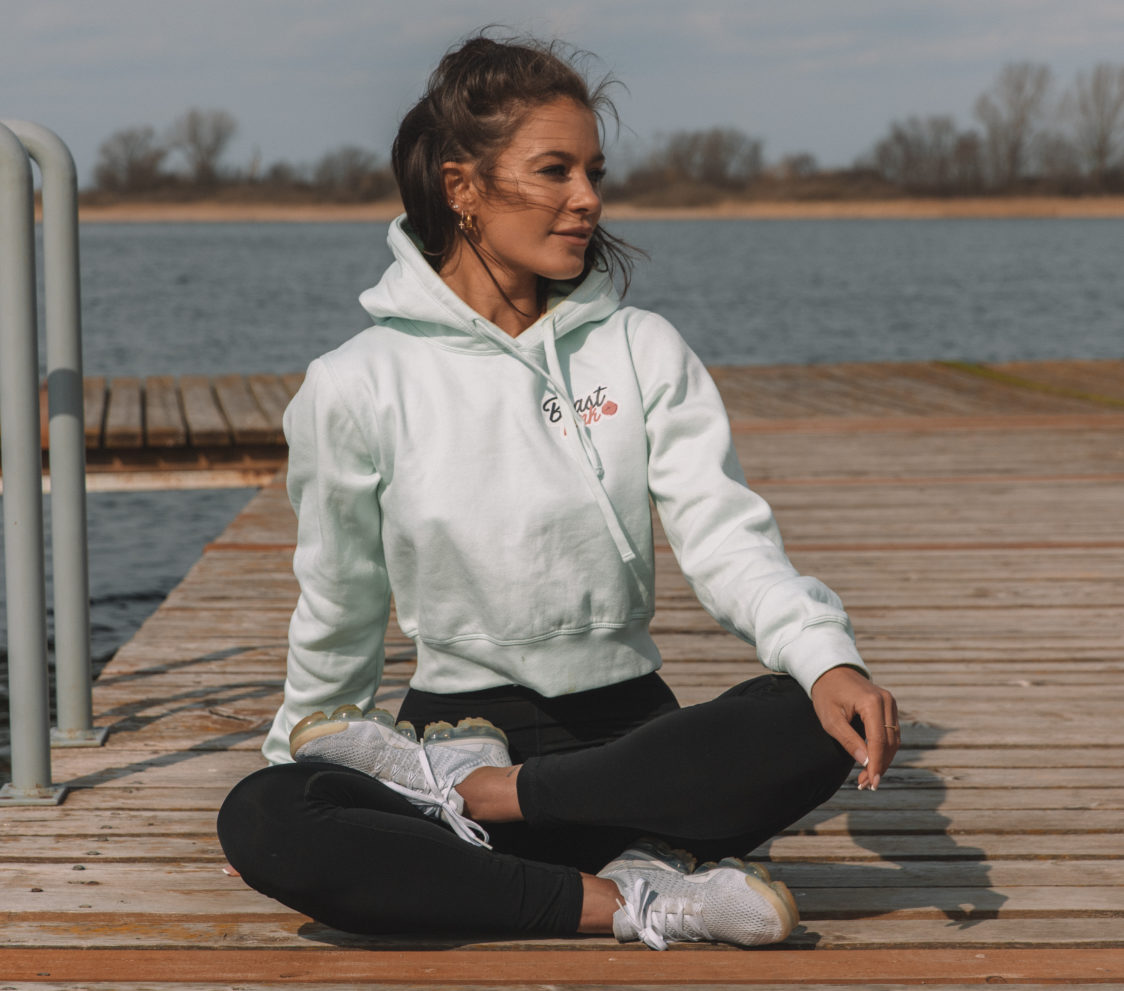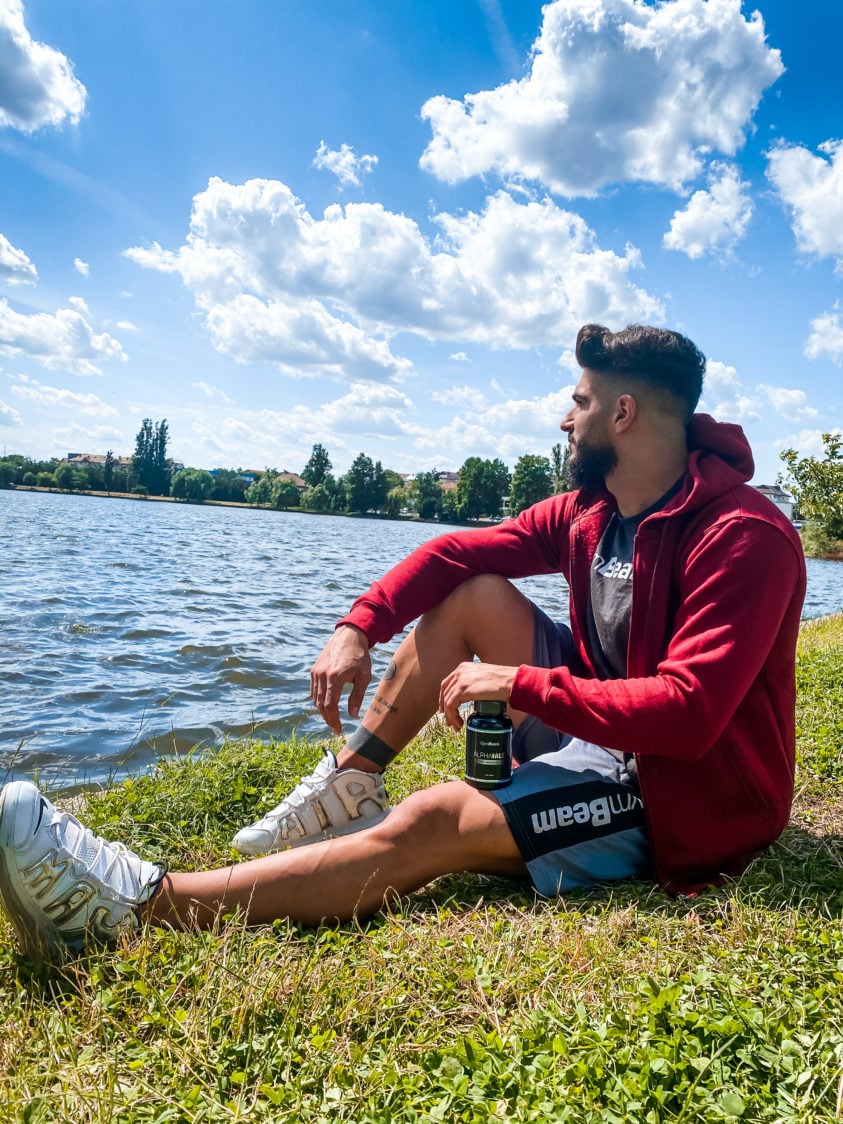Table of Contents
After the alarm rings, you reluctantly open your eyes and snooze for ten minutes a few more times. When it rings again, you jump out of bed and sprint to the bathroom. Then you grab things from the closet and head half-naked to the kitchen. There, while dressing up, you try to do what you sublimely call breakfast. At the same time, you look nervously at the watch, which tells you that at this point, you should have been already on your way to work. So you jump in the car, where you still chew on your breakfast sandwich.
While rushing to work, you can expect being anxious behind the wheel, which is followed by the pressure on your work performance from your boss. You often trade relaxing after work only for more life worries that suck all the energy from you. The space for relaxation shrinks until you reach the point where even after a good night’s sleep, you feel somehow down. So, what to do about that? The answer to this question is very important. It is not only your physical but also your mental health. That is why today we will look at the 7 types of rest that each of us needs. And we definitely don’t mean watching Netflix or scrolling through social media.
Why resting is a significant activity
Rest and regeneration are important parts of life not only for athletes but also for everyone else. That is why you should learn to plan days of rest and recognize when you need to recharge your batteries. When resting, the physical and mental strength of the body is being restored. Thanks to that, we feel fresh and full of energy after.

When talking about resting, most of us think of the need to sleep more. Sleep is your brain’s best friend and the need for it should certainly not be underestimated. Otherwise, you’re asking for issues, which we discussed in the article What Happens to Your Body When You Don’t Get Enough Sleep?
Despite all the benefits, sleep is not always the key to tackling fatigue. Sometimes happens, that even if you indulge in it more, you can still feel exhausted. Sleep is not a synonym for absolute rest, and many of us do not realize that there are more forms of rest. [1–2]
These are the 7 type of rest you need
Each of us has a different job and lifestyle, which can hand in hand create a relationship to a certain stress factor. Every day we face various problems, each of which takes a slice from our energy pie. Based on this, we recognize 7 types of rest that you should focus on. Each one is different and depends on your lifestyle. Sometimes you need a break from social media, other times you get tired of the people around you, and sometimes you just kind of realize that there is something like creative or sensory fatigue. So let’s take a look at the different types of rest that will get you back on track. [3]
1. Physical rest (active or passive)
At work, you are often on your feet for at least 8 hours a day, you can’t imagine a day without coffee, after work you also do sports and sleep is just a secondary activity for you? In that case, physical rest is exactly what you need. It is a basic form of rest, which we generally need every day after physical exhaustion, for example from work or physical activities.

In its passive form, it includes sleep, which should last about 7-9 hours for adults. However, the need is individual and depends on various aspects, such as age, level of physical activity or lifestyle. Anything under 6 hours is considered a general lack of sleep. However, according to experts, sleep time may decrease with age. We will probably find out whether this is really the case from future research on sleep. [28]
Recommended sleep time split into categories:
- 14 – 17 hours (newborns aged 0–3 months)
- 12 – 15 hours (infants aged 4-11 months)
- 11 – 14 hours (toddlers aged 1-2 years)
- 10-13 hours (preschoolers aged 3-5)
- 9-11 hours (children in school aged 6-13 years)
- 8-10 hours (teenagers aged 14-17)
- 7-9 hours (young adults aged 18-25)
- 7-9 hours (adults aged 26-64)
- 7-8 hours (seniors 64+)
If you want to improve your sleep, be sure not to miss our article How to Improve Sleep and How It Affects Health and Muscle Growth.
However, physical rest can also occur in its active form. It is a planned activity that involves the use of all methods and means to speed up the passive regeneration process. In reality, this could be, for example, that instead of the 5-miles run you were planning, you only do some easy stretching or yoga. The benefits of active regeneration are also confirmed by several studies, which are focused mainly on the sports aspect.
You might be interested in these products:
One of these studies shows that active regeneration can help clean up the waste products of energy metabolism, which is involved especially during intense sports activities. In these cases, the muscles become acidic and local metabolic acidosis develops. This is the limiting factor of sports performance, which we can support by dealing with it more effectively, i.e. by practising active regeneration. [4–6]

2. Mental rest
Does your cup of coffee seem bottomless, are you often irritated and have trouble turning off your brain full of thoughts before going to bed? Or is the problem that you forget things, can’t concentrate and feel tired even after sleeping 8 hours?
You should not underestimate the flashing indicator of your mental rest. How to do it? It’s ideal to simply turn it off. You should disconnect from the display of your mobile phone, social networks, work and various external influences that burden your mind. [7]
The positive effect of mental rest has also been analyzed in several studies. Their conclusions are:
- Employees who have a greater mental separation from work during leisure time report greater satisfaction with their lives and less mental strain compared to those who are unable to stop thinking about work even outside working hours. [8]
- Employees who took a short walk over lunch were more concentrated and less tired. The rate of fatigue and burnout was significantly lower even for those who returned from a two-week vacation. [9–10]
- Spending time in nature reduces stress and can supplement the cognitive performance deficit associated with increased stress. [11]
It follows that you should not ignore your need to have a vacation. Giving your work 200% without taking a break is not efficient and not healthy at all. If you manage to just turn off, you’ll probably soon notice that you’re more productive, happier, and get a much better work-life balance.
3. Emotional rest
Are you the type of friend that everyone thinks is the best in the world? Many people turn to you for advice, and you can’t say no? Do you feel that you are a bit stuck in a loop of saying yes to everything, trying to always satisfy others?
Well, these can be signals of emotional exhaustion. It stems from the accumulated stress from both – your personal and work life. In addition, it is one of the signs of burnout. People who experience this condition often feel that they have no control over what happens in their lives.
Studies suggest that emotional exhaustion most often happens to people who face high demands at work and are unable to turn off. According to experts, perfectionism or feelings of loneliness can also be a risk factor. [12–16]
If, based on these factors, you feel that you need emotional rest, these can help you:
- Adequate amount of sleep, the absence of which is associated in some studies with a higher risk of burnout
- Healthy eating, which helps you get both the necessary vitamins and minerals, but also improves digestion, sleep and increase energy levels, which can positively influence your emotional state
- Any kind of physical activity (can help by increasing endorphins and serotonin – considered to be a hormone of happiness)
- Breathing exercises, yoga or meditation, where one of the studies concluded that the first attempt at meditation is already able to reverse the effects of stress on your body
- Favourite activities (reading, drawing, sports, movies, music, etc.)

4. Sensory rest
Do you sometimes feel that everything in this world fights for your attention? Many of you probably can relate. You are sitting by your PC, choosing the right protein from our assortment, at the same time breaking news are screaming at you from the TV, the smartwatch on your wrist keeps telling you to go for a walk and the Messenger is constantly dinging with notifications. Similar situations can cause sensory overload, but for various reasons can also occur during a normal trip to work or school. For example, when people around you speak too loudly, you can smell a strong smell of food or light bulbs are flickering in the room.
Such situations cause discomfort, feelings of paralysis, anxiety, irritability, stress or loss of concentration. Sensory overload occurs when the brain fails to interpret or process sensory inputs. It then signals the body that it is time to escape the situation. Sensory relaxation can help you. Close your eyes for a while in the middle of the day, spend some time in a quiet environment, or disconnect from the Internet in the evening. [2] [17] [18]
The following tips can also help:
- Try to identify triggers that induce sensory overload (sounds, smells, lights, situations…) and avoid them
- If you are going to the store, prepare a shopping list in advance, which can help prevent you from being overwhelmed by smells, sounds or too many options while shopping
- Working in a quiet environment without distractions can help you focus on just one specific task and not overload your senses with other stimuli
- Treat yourself with sufficient amount of rest and try to drink plenty of water. This combination helps your brain work at an optimal level.
5. Creative rest
Do you work in a creative industry, where you are often forced to create new, innovative ideas or solve problems in different, creative ways? In addition, do you feel that your productivity has been declining lately, and you can’t come up with an idea that would be worth it? In that case, you should consider creative relaxation.

It’s a time when your brain just idles without having to create anything. You will appreciate it when you feel stuck, without inspiration and the ability to come up with new ideas.[2] [5] [19]
Tips for creative relaxation include:
- Spending time in nature (walking, hiking…)
- Sport activities
- Artistic experience (concerts, art exhibitions, cinemas, theatres…)
- Exposure to nature, or artistic or innovative environment without feeling the need to create something
- Enough sleep and various forms of meditation
- Vacation, sabbatical
- Book reading
6. Social rest
Do you feel exhausted from the people and relationships around you? There is also a specific solution to this type of fatigue, which is social rest. It is defined as the ability to distinguish relationships that enrich us from relationships that exhaust us. Thanks to that, you can also isolate yourself from the so-called toxic people who suck energy out of you.
However, it does not necessarily have to be just time spent alone, isolating yourself from others. Social rest also includes time spent in the company of someone we like. You can also contact an old friend who knows you well and understands how you feel, even without a lengthy explanation. [20–21]
Nowadays, social rest can also include a break from social networks. They are a good thing and allow us to be in contact with our loved ones, but we shouldn’t use them too much. So, how much time should you spend using them? The answer came from a study that claims that spending only 30 minutes a day on social networks can help improve mental health and well-being. [22–24]
You should consider rest from social networks, especially in cases where:
- You can’t stop comparing your life to someone else’s perfect life that you see on social media
- You routinely scroll through social networks without realizing it
- You’re annoyed by most of the posts you see (from politics to excessive content sharing to current news)
- You can’t enjoy the present moments without mentioning them on social networks
- Social networks are the first thing you check in the morning and the last thing you look at before going to bed. One study concluded that 80% of users pick up their smartphone within 15 minutes of waking up. This bad habit has been associated with increased stress and anxiety. Not to mention that it takes up people’s valuable time and can cause sleep problems because the light from the display stimulates your brain.
7. Spiritual rest
Do you feel inner turmoil, being trapped in the problems of everyday life and a lack of connection to something bigger than yourself? In that case, try to think about our last type of rest – spiritual. It has many definitions, but basically, it could be said that it gives some context to our lives.
It evokes a feeling of belonging, love or acceptance. The tools for spiritual rest are different. Some people may benefit from meditation, visiting church, praying, or helping the local community. Others can find spiritual connections in nature, music or art. [2] [25]
If you are unsure about this, you can try to answer the following questions to discover your spirituality:
- What relationships do you consider important in your life?
- What do you value most in life?
- What inspires and gives you hope?
- What brings you joy?
- What achievements in your life are you proud of?
Several studies have also looked at this area and claim that spiritual rest in the form of meditation can be effective in conditions such as depression, anxiety or stress. [26–27]
What should you remember?
Considering all the things we talked about, it is clear that sleep is not the only measure of rest. Based on different types of fatigue, you can now define up to seven areas that can cause discomfort in your life. If you find yourself in one of them, you should definitely not underestimate the need for rest. It will help you replenish your physical and mental strength and charge you with energy for the next few days. Practising specific types of relaxation also brings various individual benefits that can make your life happier.
How do you like to rest? Do you think it makes sense to distinguish 7 types of rest, or is sleep the only way for you to recharge your batteries? We look forward to your opinions in the comments. If you liked the article, share it with your friends.
[1] Jenna Fletcher - When and how to spend a rest day – https://www.medicalnewstoday.com/articles/rest-day#when-to-rest
[2] Sandra Dalton-Smith MD - The 7 types of rest that every person needs – https://ideas.ted.com/the-7-types-of-rest-that-every-person-needs
[3] Bani Malhotra - Am I Well Rested? My Reflections on the 7 Types of Rest – https://arttherapy.org/blog-reflections-on-7-types-of-rest/
[4] Eric Suni - How Much Sleep Do We Really Need? – https://www.sleepfoundation.org/how-sleep-works/how-much-sleep-do-we-really-need
[5] Deanna deBara - How To Leverage The 7 Types Of Rest To Be Your Happiest, Most Productive Self – https://blog.trello.com/7-types-of-rest?utm_source=newsletter&utm_medium=email&utm_campaign=trello-may2021-newsletter2
[6] Paul Menzies, Craig Menzies, Laura McIntyre, Paul Paterson, John Wilson & Ole J. Kemi - Blood lactate clearance during active recovery after an intense running bout depends on the intensity of the active recovery – https://www.tandfonline.com/doi/full/10.1080/02640414.2010.481721
[7] Juna Xu - There are 7 types of rest - this quiz will tell you which one you need right now – https://www.bodyandsoul.com.au/mind-body/wellbeing/apparently-there-are-7-types-of-rest-this-quiz-will-tell-you-which-one-you-need/news-story/7b0ff97e5aef5724646ede9092a986fc
[8] Sabine Sonnentag - Psychological Detachment From Work During Leisure Time: The Benefits of Mentally Disengaging From Work – https://journals.sagepub.com/doi/full/10.1177/0963721411434979
[9] Sianoja, Marjaana Syrek, Christine J. de Bloom, Jessica Korpela, Kalevi Kinnunen, Ulla - Enhancing daily well-being at work through lunchtime park walks and relaxation exercises: Recovery experiences as mediators – https://psycnet.apa.org/record/2017-14084-001?_ga=2.16638902.1860558208.1624280829-1846856648.1624280829
[10] Jana Kühnel, Sabine Sonnentag - How long do you benefit from vacation? A closer look at the fade-out of vacation effects – https://onlinelibrary.wiley.com/doi/full/10.1002/job.699
[11] Rita Berto - The Role of Nature in Coping with Psycho-Physiological Stress: A Literature Review on Restorativeness – https://www.mdpi.com/2076-328X/4/4/394/htm
[12] Jacquelyn Cafasso - Emotional Exhaustion: What It Is and How to Treat It – https://www.healthline.com/health/emotional-exhaustion#treatment
[13] Marie Söderström, Kerstin Jeding, Mirjam Ekstedt, Aleksander Perski, Torbjörn Akerstedt - Insufficient sleep predicts clinical burnout – https://pubmed.ncbi.nlm.nih.gov/22449013/
[14] Jayne Leonard - How to recognize and cope with emotional exhaustion – https://www.medicalnewstoday.com/articles/323441#treatment-and-tips-for-recovery
[15] Fiona D'Souza, Sarah J. Egan, Clare S. Rees - The Relationship Between Perfectionism, Stress and Burnout in Clinical Psychologists – https://www.cambridge.org/core/journals/behaviour-change/article/abs/relationship-between-perfectionism-stress-and-burnout-in-clinical-psychologists/46E3EE385FC009C78D6FF5C5AD02D71E
[16] John Durocher, Hannah Marti, Brigitte Morin, Travis Wakeham - Single Session Mindfulness Meditation Reduces Aortic Pulsatile Load and Anxiety in Mild to Moderately Anxious Adults – https://plan.core-apps.com/eb2018/abstract/8bf13c01-6090-4bc8-827f-779d9e1991a4
[17] Jayne Leonard - What to know about sensory overload – https://www.medicalnewstoday.com/articles/sensory-overload#what-it-is
[18] Kathryn Watson - What Is Sensory Overload? – https://www.healthline.com/health/sensory-overload#coping
[19] 5 Important Forms of Creative Rest – https://musicbed.com/blog/career/5-important-forms-of-creative-rest
[20] Molly Shea - The 7 Types of Rest You Need to Actually Feel Recharged – https://advice.theshineapp.com/articles/the-7-types-of-rest-you-need-to-actually-feel-recharged/
[21] Tara Jefferson - 7 Types of Rest: Social Rest – https://www.theselfcaresuite.com/essays/social-rest
[22] Melissa G. Hunt, Rachel Marx, Courtney Lipson and Jordyn Young - No More FOMO: Limiting Social Media Decreases Loneliness and Depression – https://guilfordjournals.com/doi/abs/10.1521/jscp.2018.37.10.751
[23] 8 Signs You Need to Take a Break From Social Media – https://health.clevelandclinic.org/signs-you-need-to-take-a-break-from-social-media/
[24] Always Connected (Study) – https://www.nu.nl/files/IDC-Facebook%20Always%20Connected%20(1).pdf
[25] Spirituality and stress relief: Make the connection – https://www.mayoclinic.org/healthy-lifestyle/stress-management/in-depth/stress-relief/art-20044464
[26] Adam Burke, Chun Nok Lam, Barbara Stussman & Hui Yang - Prevalence and patterns of use of mantra, mindfulness and spiritual meditation among adults in the United States – https://bmccomplementmedtherapies.biomedcentral.com/articles/10.1186/s12906-017-1827-8
[27] Rozeeda Kadri, Rohayah Husain, Syed Hadzrullathfi Syed Omar - Impact of Spiritual Meditation on Drug Addiction Recovery and Wellbeing: A Systematic Review – https://ijhhsfimaweb.info/index.php/IJHHS/article/view/208
[28] Max Hirshkowitz, Kaitlyn Whiton, Steven M.Albert, Cathy Alessi, Oliviero Bruni - National Sleep Foundation’s sleep time duration recommendations: methodology and results summary – https://www.sciencedirect.com/science/article/abs/pii/S2352721815000157


Add a comment